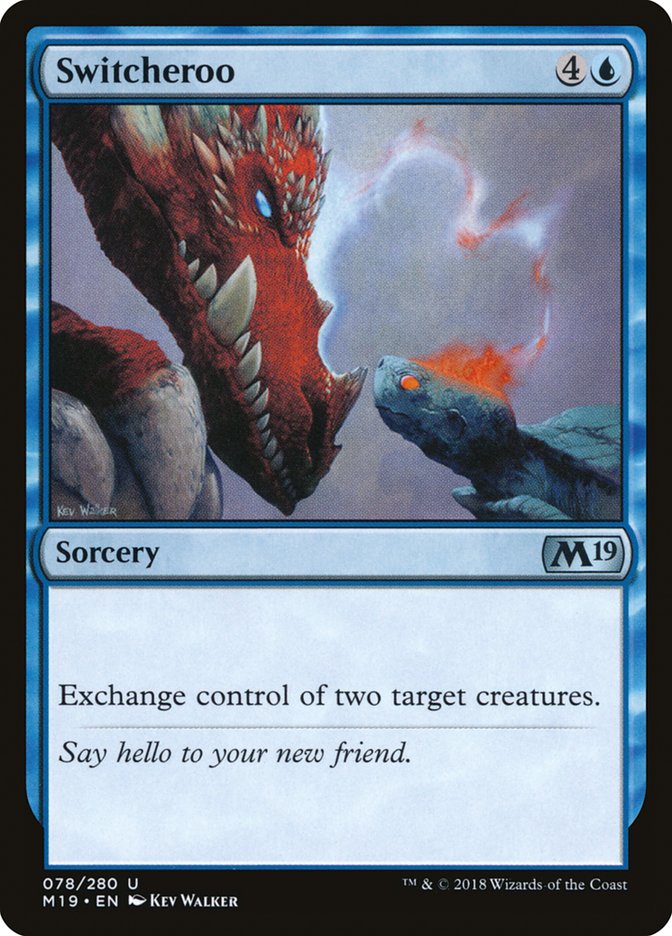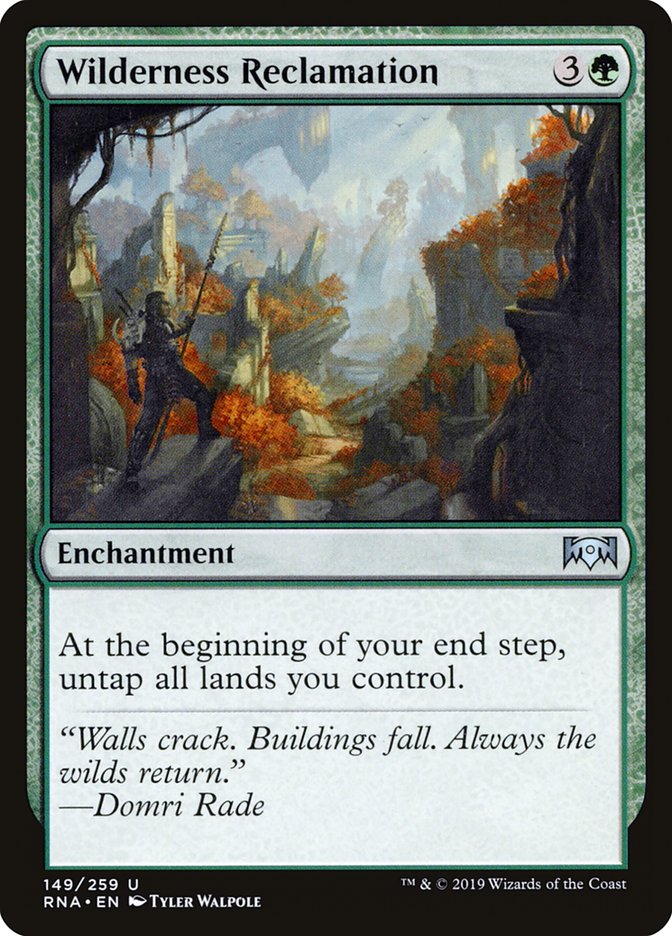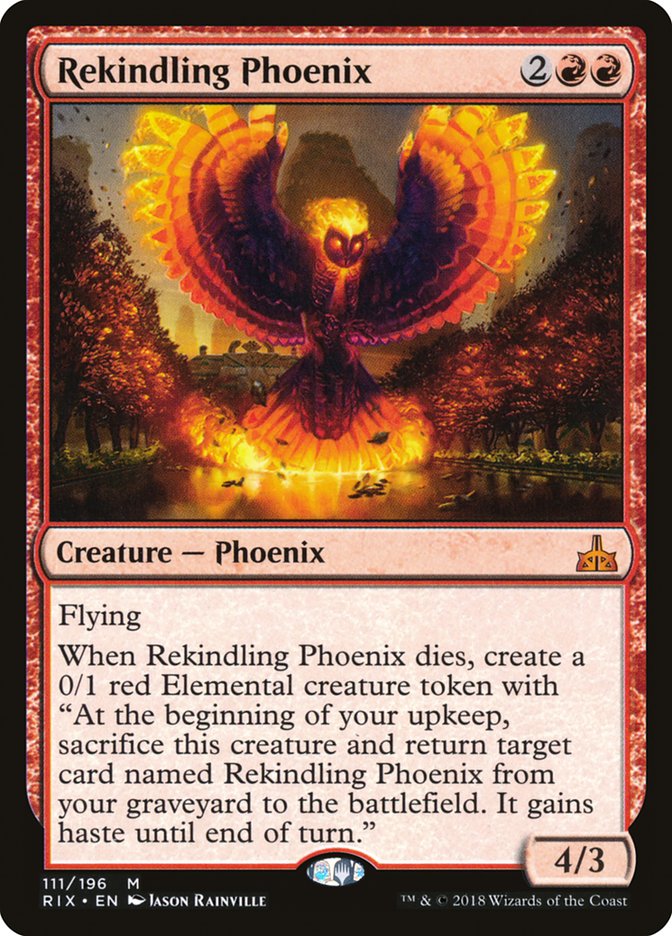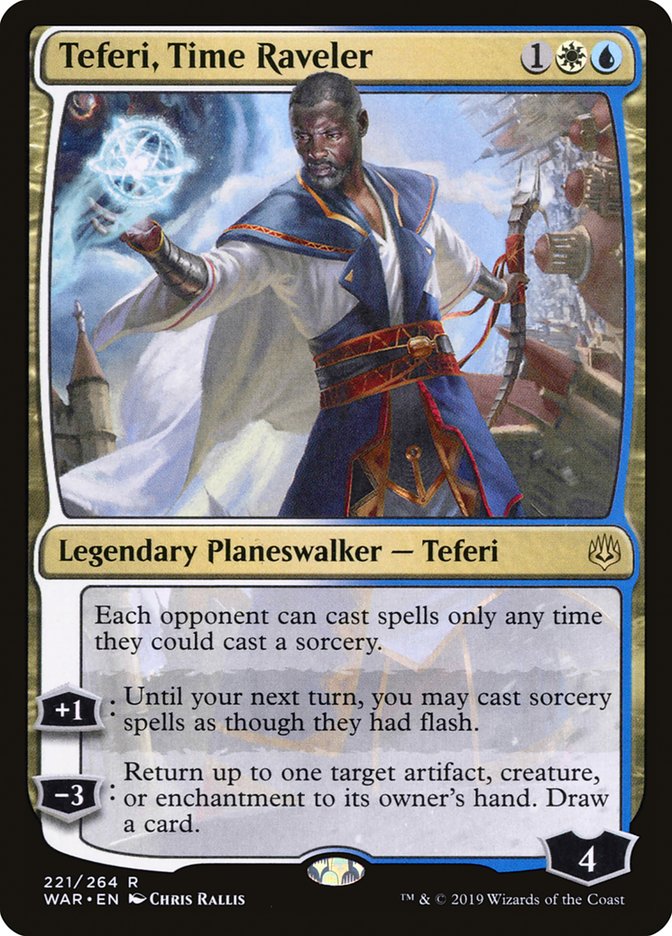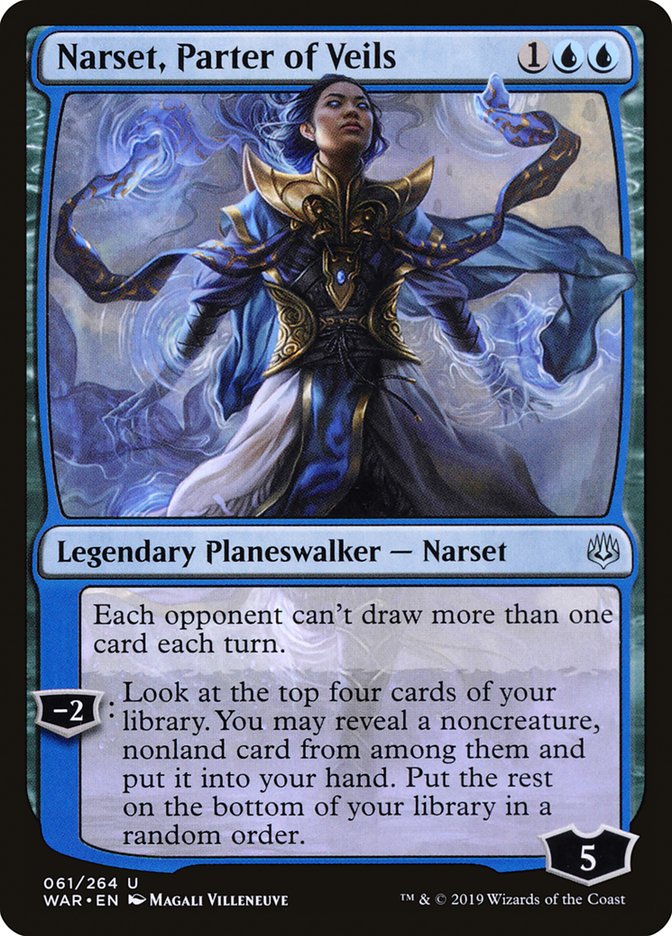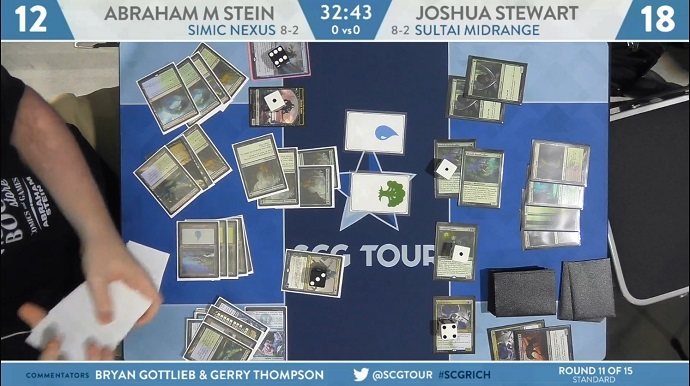
Record scratch. Freeze frame.
You might be wondering how I got here, resolving Nexus of Fate against an empty chair for what must have been the tenth time in a row. Wasn’t I just talking to you on Wednesday about how I was in love with Big Red? How did we get all the way from Rekindling Phoenix to Wilderness Reclamation in just a few days? Was my order cancelled in a conspiracy to stop me? My deck stolen by a biker gang? Was I too afraid to put my money where my mouth was?
As much as these would be good ways to drive the plot of a cliche movie, the answer is really not that complicated.
I just called an audible.
In Magic, you’re your own quarterback, the one who makes the big decisions. Friends, teammates, and content creators can all help contribute to your success, but ultimately it’s your job to figure out how you are getting there. Most of the time this is a pretty straightforward process: you put your time in practicing, identify something that works for you, and call it a day.
Sometimes, however, you’ve got the perfect play lined up in your head, you think you have it all figured out, and then you go out on the field and see a defense ready to destroy you. There’s no time to go back to the drawing board, no time out to call. What can you do?
In my eyes, this is where a player’s ability to be flexible and versatile is called on the most. With the most complete picture of what you’re going to see at a tournament outlined in front of you, what will you do with that information?
Most often, I see players do nothing. They stick to their guns, go out there, and get clobbered. That’s not necessarily a bad thing. I don’t expect everyone who plays every Magic tournament I’m in to go through the same level of rigor in their decision-making, I don’t expect them to see things exactly as I do, and I don’t expect them to come to the same conclusions I do. What I do expect of myself and of my opponents is that we all have a logical reason for why we made the decisions we chose to.
Everyone operates under constraints; not everyone has access to another deck on short notice, or has the confidence and knowledge required to feel comfortable with a last-second deck selection. If this sounds like you, then know there’s nothing wrong with that, but for the rest of this article I’m going to make a couple of big assumptions:
1) When considering when to audible, there are at least two choices.
2) Some uncontrollable, hidden factor like the metagame influences your decision.
I make these assumptions because if it’s the Friday night before a tournament, you likely have it all narrowed down to only a few possibilities, and you’re making a decision in a time crunch. Everything you’re choosing between is available to you, and you’ve known this decision is one you would have to make. The big question you have left to ask yourself is which choice is correct.
When it comes down to making the decision to switch or not, I find it is easiest to lay out all of the factors I want to consider and then ask a few key questions of myself:
- What would the metagame have to look like for Deck A/Deck B to be the better choice?
- What do I expect the metagame to look like?
- How confident am I in my ability to play Deck A/Deck B?
- What makes me afraid of playing Deck A/Deck B?
- What are the similarities of Deck A/Deck B?
- What are the differences of Deck A/Deck B?
The more information you can establish as a foundation for yourself, the easier it becomes to strip away parts of the problem and build towards a solution. Much like in algebra, the things that are the same between both parts of your equation can be simplified, leaving you with less to move around when you’re trying to solve.
There might not be two cards more different in Standard at four mana than these two, but that makes them perfect to illustrate how this process can help you. Here’s how it happened over my week.
When I submitted Big Red as my choice for the What We’d Play article of the week, I already had my deck selection narrowed down to just two choices, Big Red and whatever the de facto “best deck” was. The Magic Online metagame had been covered in midrange and control decks with their sights set on Mono-Red Aggro and shoring themselves up against Simic Nexus. At that time I thought that Mono-Red would likely deter Simic Nexus players from showing up in force, and I was hoping to ride atop the wave of players with Enter the God-Eternals in their deck through a field of Goblin Chainwhirlers to the top of the standings.
When I read the other contributions to What We’d Play, I saw a very different picture from what I was expecting from Magic Online. Simic Nexus was now the boogeyman that needed an answer, not Mono-Red Aggro. This is where the sirens started going off in my head. I could justify playing a deck that lost to Nexus but beat what I expected to be a large majority of the field. With this new conflicting picture of the metagame in my head and enough prey for Mono-Red Aggro to thrive on, my goose would certainly be cooked.
Fortunately, I had a decent amount of experience with Simic Nexus from before the release of War of the Spark and falling back on it felt comfortable to me. Thanks to the members of Team Mythicos and Team Lotus Box who had been collaborating on Simic Nexus, I was free to focus my efforts on Big Red and finding a configuration that would contend with a red-heavy metagame.
At this point I was starting to get worried that if I did play Big Red, I’d wind up pinched between a rock and a hard place with Simic Nexus and Mono-Red Aggro being the majority of the field. If what everyone was saying about the metagame was true and I was wrong about my initial findings, then I’d surely regret showing up with those decks being my two hardest matchups. Conversely though, if what I thought was true about the metagame was the case, then Simic Nexus would be up against a field of hate that it would have real difficulty overcoming. Esper decks were becoming fairly popular online, and I wasn’t sure that Nexus had what it took to overcome them.
After some focused testing with my last drafts of Big Red and a long conversation about playing against hate that dispelled my fears of playing Nexus, the choice was clear. Without even having a metagame to go by, my comparisons of the two decks broke down like this:
- Both decks had poor Mono-Red Aggro matchups.
- Both decks beat a majority of midrange decks.
- Simic Nexus mirrors were 50/50, which was better than Big Red VS Nexus.
- Simic Nexus was more powerful.
So, the night before I left for Richmond with no looking back, I had audibled to the following decklist.
Planeswalkers (3)
Lands (25)
Spells (32)

I really feel like we knocked it out of the park with this Nexus list. Unfortunately the room was much more hostile than we expected in Richmond. The deck is definitely in a league of its own in power level, and I couldn’t ask for more out of my deck selection. Considering my alternative selection likely would have missed the cut to Day 2, I certainly consider this a successful audible.
“Yeah, that’s a really nice story, and I get why you swapped, but how can I know when I should do it? Why would I abandon my deck choice in the first place?”
For starters, the really big advantage you get from audibling is that you have more time to make your final decision. As you approach a tournament with an idea of how you plan on winning, you can adapt and adjust your plan towards your more and more refined idea. When one of those baseline ideas comes into question right before an event, that is a perfect time to consider an audible.
If you see something on the horizon you didn’t before, you’d be foolish not to consider it. Knowledge is power, and using all of it available to you is an easy way to get a leg up on those who don’t.
To reiterate something I said in the beginning, it’s okay to look at everything you see and decide not to audible. Sometimes you don’t have a deck to audible to, or you don’t have a true level of proficiency with another choice. In Modern this is painfully apparent, as card availability can be restrictive and decks can be very intricate and difficult to master; however, time has shown that players who take time to understand multiple decks and expand their range perform better than those who don’t. There’s not a single grinder on the SCG Tour that I can think of who doesn’t have the chops to play a few different decks, and that’s no coincidence.
Audibles are only as good as the plays you can call on the field. If you don’t think you have a better play than the one you came out to run up your sleeve, then don’t wing it. Take note of it and think about how you could be better-prepared the next time and work on that. Improvement is a process, and success is a journey. Put in the work and you’ll start to see where it pays off.
Creatures (20)
- 4 Fanatical Firebrand
- 4 Ghitu Lavarunner
- 4 Goblin Chainwhirler
- 4 Viashino Pyromancer
- 4 Runaway Steam-Kin
Planeswalkers (4)
Lands (20)
- 20 Mountain
Spells (16)

As a final note, and the reason I really wanted to write this article, over the weekend, to some minor controversy, three members of Team Nova made the Top 8. Ultimately Will Pulliam took home the trophy after an excellent showing of just how great Chandra, Fire Artisan is. The controversy was that members of Team Nova had put out a piece of content similar to our What We’d Play here on SCG Premium, and all three in the Top 8 had changed decks.
This was criticized as disingenuous and dishonest by some, as their fans who consume their content are looking for the decks they’d play on the weekend, and they failed to deliver that full transparency. As someone who has played every Open this season while creating content here on SCG Select, I can’t help but empathize with Team Nova for what is a bit of a Catch-22. One can say they have an obligation to their fans to hold firmly to their content for integrity’s sake, but as competitors shooting for the Players’ Championship, they also have an obligation to themselves to do their absolute best.
I know all three of these players personally, and I know they wouldn’t ever phone it in when it comes to their content. I also know that they all had the cards to play the decks they wrote about, but audibled because they thought it was their best chance to win. In my eyes, Magic is special because you don’t have to wonder what it’s like or what’s going on with the people who are truly great at it. Every article you read is a look into the mind of a Peyton Manning or Tom Brady, breaking down the experience of being them, how they think, and why.
Would it really be authentically them to their fans if they had stuck to decks they thought might not give them the best chance of having the success those fans want? Would great players seem so great if they were bound to the plays that were called? Or do those moments of uncertainty where they prevail truly bring out their star qualities?
Just some food for thought on your Wednesday afternoon. As always, thanks for reading, and I’ll see you next week prepping for SCG Syracuse.


